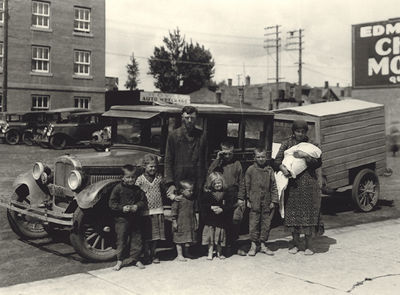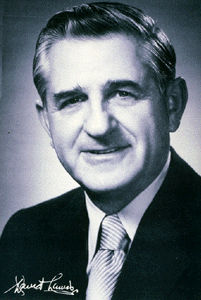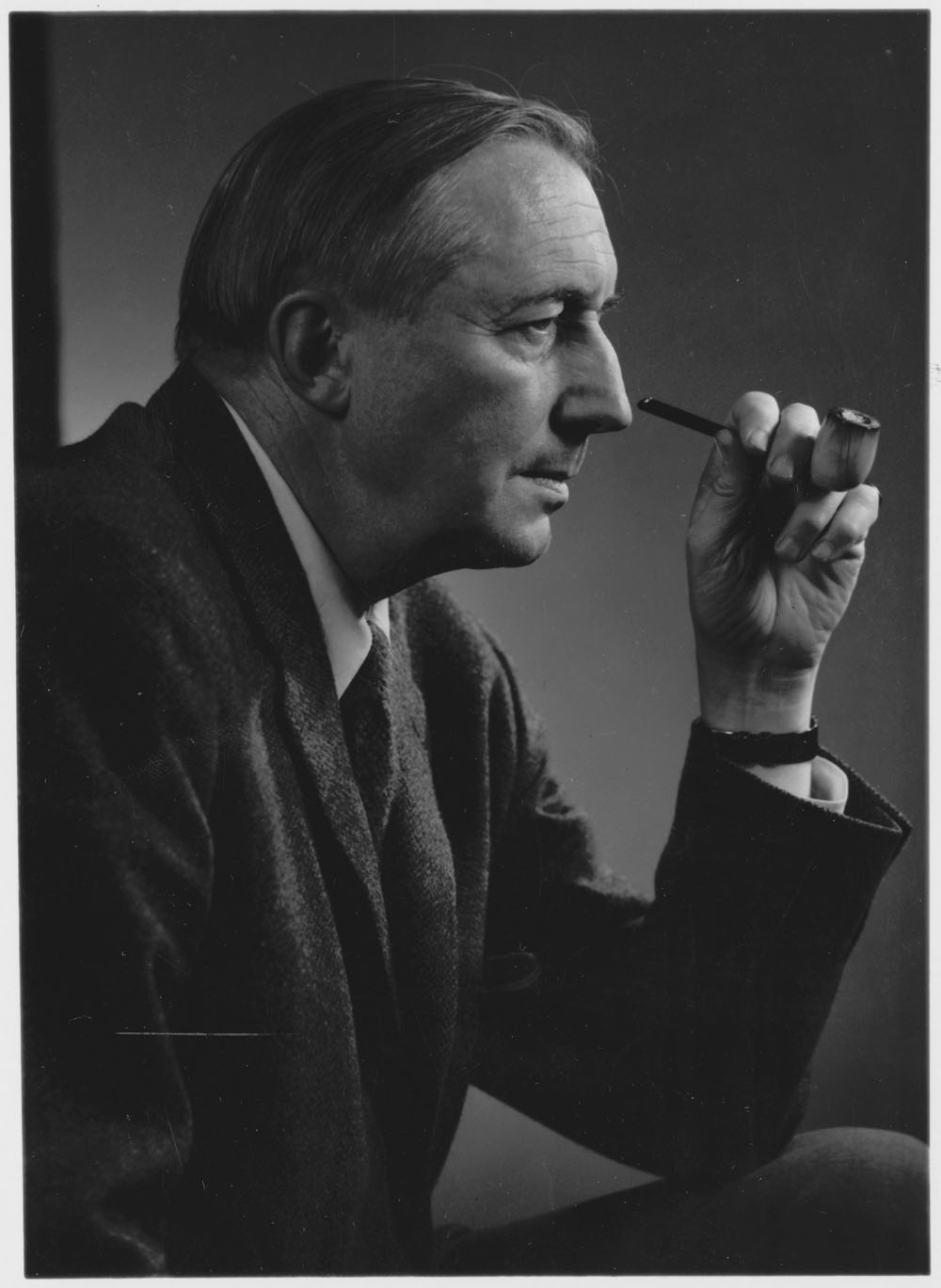David Lewis, né Losz, social democratic politician, labour lawyer, university professor (born 23 June 1909 in Svisloch, Russia [now Svislach, Belarus]; died 23 May 1981 in Ottawa, ON). Lewis was an influential figure in the Co-operative Commonwealth Federation (CCF), serving as national secretary (1936–50) and on the executive (1950–61). He was one of the key architects of its successor, the New Democratic Party (NDP), and was leader of the federal party from 1971 to 1974. Throughout his career, Lewis worked to remove communist influence from the labour movement and to build links between the labour and socialist movements.

Early Life and Education
David Lewis was born David Losz in 1909 to parents Rose (née Lazarovitz) and Moishe Losz. He grew up in Svisloch, a Jewish market town or shtetl in what is now Belarus but was then part of the Russian Empire. As a child, he lived through the German invasion of Russia in the First World War and the Russian Revolution. (See also Canadian Intervention in the Russian Civil War.) His father was involved in the Jewish Labour Bund, a socialist party formed in the late 19th century that called for national rights for the Jewish community. Moishe Losz was jailed for voicing opposition to the Bolsheviks and in 1921, the family anglicized its name to “Lewis” and moved to Montreal.
After graduating from a Montreal high school, Lewis enrolled at McGill University, where he studied arts and law (1927–31). He then won a Rhodes scholarship to attend Oxford (1932–35), where he established extensive contacts with socialists in the British Labour Party.
Co-operative Commonwealth Federation
Upon returning to Canada, David Lewis practised law in Ottawa, but in 1936 he commenced work as national secretary for the Co-operative Commonwealth Federation. During these years he became a key CCF theorist and member of the League for Social Reconstruction. In 1943 he co-authored, with F.R. Scott, Make This Your Canada. Lewis ran for gain election to Parliament in 1940, 1943 (by-election), 1945 and 1949 but was unsuccessful. From 1943 to 1945, he was the primary target of a vicious antisocialist campaign.
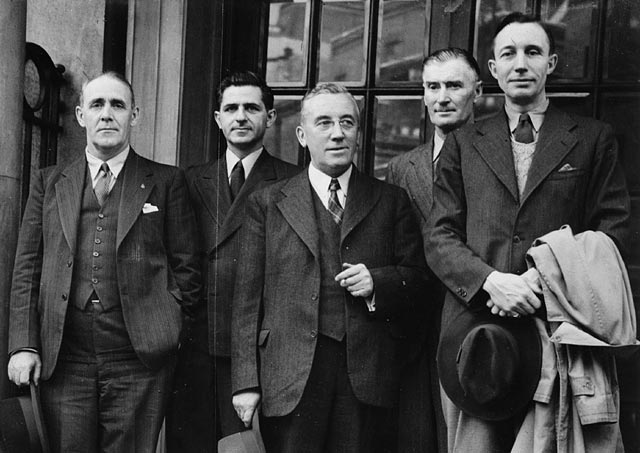
In 1950, Lewis resigned as the CCF’s national secretary and practised labour law, though his involvement with the CCF continued. He held a variety of executive positions — vice-chairman (1950–54), chairman (1954–58) and president (1959–61) — and helped draft the Winnipeg Declaration of Principles (1956). Lewis consistently worked to rid the labour movement of communist infiltration and to forge a link between the Canadian socialist and labour movements.
New Democratic Party
David Lewis was the key architect in the formation of the New Democratic Party in 1961. Through his efforts the primarily western farm-based CCF was transformed into the more urban, labour-oriented and successful NDP.
Lewis ran for Parliament in York South in 1962, 1963, 1965, 1968, 1972 and 1974, losing only in 1963 and 1974. He quickly became one of Parliament's most devastating debaters. Lewis continued to serve in a variety of NDP executive posts, culminating in his election as leader at a long and polarized 1971 NDP convention in which he defeated Jim Laxer, representing the Waffle, a left-wing NDP faction. Lewis, campaigning on the theme of "corporate welfare bums," achieved his greatest political prominence in 1972 when he held the balance of power in the Liberal minority government of 1972–74. That Parliament enacted a new Elections Expenses Act, pension indexing, Petro-Canada and the Foreign Investment Review Agency.
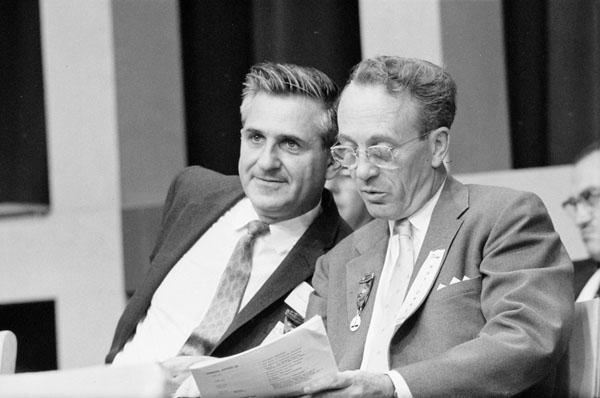
Later Career
After his defeat in the federal election of 1974, Lewis stepped down as NDP leader in 1975 and ended his career as a professor at Carleton University. The first volume of his memoirs, The Good Fight, was published posthumously (1981).
Legacy
David Lewis was sometimes a controversial figure, but few doubted his intellect, energy and sacrifices on behalf of Canadian socialism. Lewis's legacy continues through his family; his son Stephen Lewis was leader of the Ontario NDP and his son Michael Lewis was secretary of the Ontario NDP, while his daughter Janet Solberg was president of the Ontario NDP in the 1980s. One of his grandsons, Avi Lewis, is a prominent political commentator on television.

 Share on Facebook
Share on Facebook Share on X
Share on X Share by Email
Share by Email Share on Google Classroom
Share on Google Classroom
